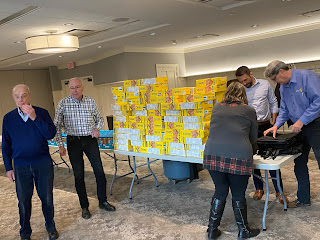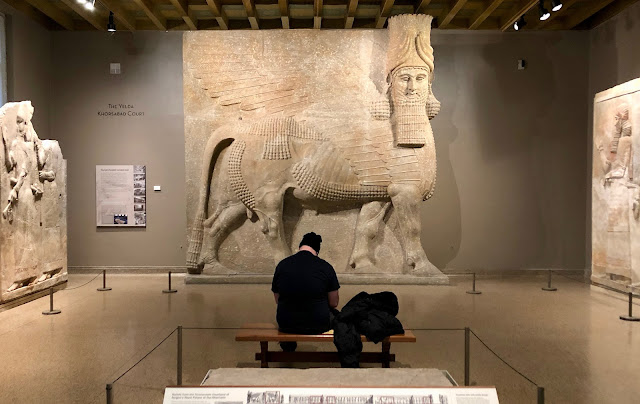 |
| Janice Sackett, from left, Edie Steinberg and Alan Goldberg |
Three turkeys. One roasted. One fried. One smoked. Which is a lot of turkey. But I have help. My brother- and sister-in-law, Jay and Janice, do the deep frying honors, in our driveway. My other brother-in-law, Alan, smokes another turkey at his house. And my wife roasts the third.
Did you notice the sleight of hand above? I said, “I have help ...” but actually I’m not preparing any of the three turkeys. My role is to buy two ... OK, I don’t do that either. My wife does. But I did lift them, when requested, transferring the birds from supermarket case to cart.
And I’ll carve one, inexpertly, a hack job that will be greeted with indulgence. If you get nothing else from this column, take away the idea that this Thanksgiving you will be kind, especially to those who do something wrong. And double kind to anybody spilling anything. Especially a child. Because such moments linger. I know a parent who once yelled at a child who spilled soda at Thanksgiving, and that yell echoes across the years — it was mentioned a few days ago. You can’t unring a bell, as the lawyers say, nor can you suck back a yell. Keep paper towels handy.
Things spill. Things go wrong. The bad is as much part of Thanksgiving as the good. Maybe more. The ritual trundling out of terrible moments and Thanksgiving disasters. One year my Grandma Sarah didn’t pan fry the celery before she put it in her stuffing, and it was crunchy. I, a child, hated that. Crunchy seemed antithetical to the soft comfort of stuffing. I reminded her every year, for the rest of her life: “Grandma. Make sure the celery isn’t crunchy.” It’s all I remember of those long-ago feasts, what I think of when I’m poking a wooden spoon at the sizzling celery. Sorry, Grandma. Children can be cruel.
Three turkeys for 23 people. A lot of people, but not as many as in years past, when we could serve three dozen. Neither boy is coming home. I’ve generally drawn the veil on their lives, as they are now professional adults who don’t want their private doings chronicled in a newspaper. But that leads some readers to imagine they’re still toddlers, and I don’t think I’m spilling the beans to say they’re both away, kicking the tires of their girlfriends’ families. I practically clamped my hand over my mouth, trying not to give advice on that front. “Make sure you ...” Shutting up is an art form. Although I’m secretly worried, not that these visits will go poorly, but too well. They’ll like what they see so much, we’ll never get them back. Our house will become the thatched roof hut of the old sod, cherished in memory but never returned to. If not exactly cherished, then remembered fondly. Or at least remembered. I hope. That’s the trick of being a parent: you wind their propellers then let them fly, holding your breath, scanning the skies for their return. It’s like being in a cargo cult. Maybe next year. Maybe not.











